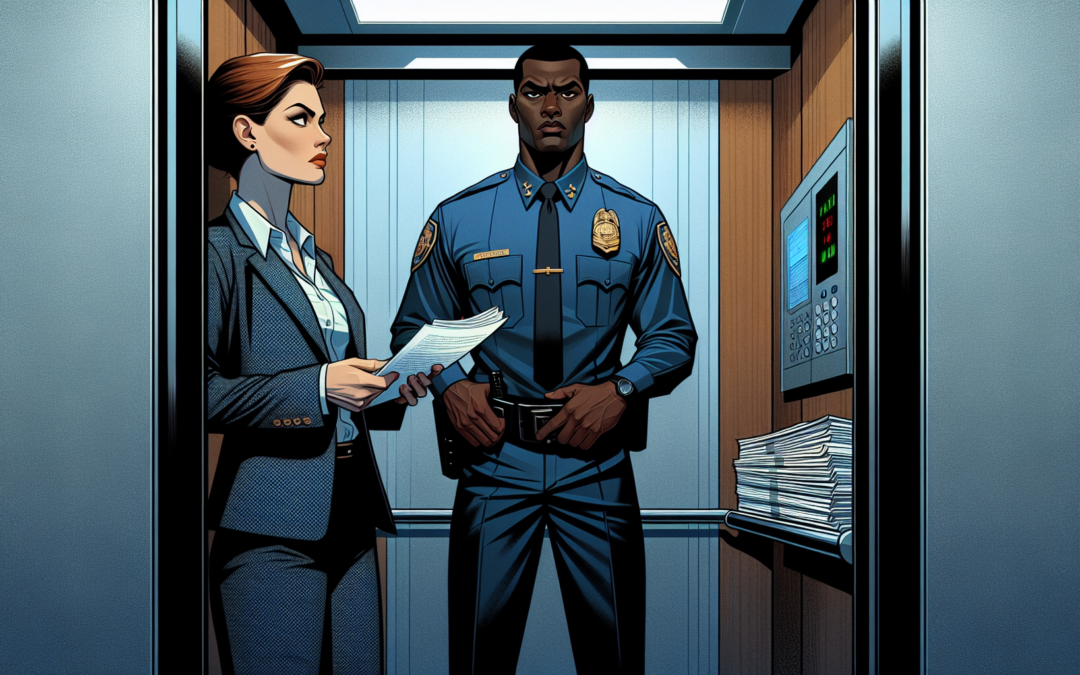The Balance of Power: A Law Enforcement Perspective on Public Auditors
In the realm of civil service, few roles are as debated and scrutinized as that of law enforcement officers. Tasked with maintaining order and ensuring public safety, these officers are increasingly finding themselves in front of the cameras wielded by individuals known as auditors. As auditors often arm themselves with an insatiable quest for transparency, officers must adeptly manage these encounters, previously unseen or considered mere routine. This newfound scrutiny challenges the officers’ resolve to preserve the principles of law and order while respecting public rights, even amidst public discord.
The intersection between rights and responsibilities creates a profound nexus of societal philosophy and operational reality. When citizens call for accountability, they are not merely requesting a report on an officer’s day-to-day activities. They seek assurance that the rights afforded to them under the Constitution are protected zealously. This sentiment, nested in the public’s core, reflects broader societal shifts towards transparency. Officers now operate not only in a public eye but under constant surveillance, their actions dissected and disseminated instantaneously. Click Here to join the discussion on The John Ligato Show.
As custodians of the law, officers must understand this transformation—not as a threat—but as an opportunity to collaboratively build trust. However, equal emphasis must be placed on respect for authority and facilitation of a safe environment. This complexity deepens when auditors, perceived by some as antagonistic rather than catalyzing allies, escalate encounters to test officers’ adherence to legal limitations. Encounters become not just matters of procedure but a test of ethics and temperament.
Consider a scenario where an auditor approaches a police officer during their duty, camera in hand, seeking to exercise their right to film. Herein lies a balancing act on the part of the officer. Compliance and professional decorum must coexist while preserving public safety from unchecked chaos. Officers are trained extensively in de-escalation, yet these situations remain rife with unpredictability. In such scenarios, emotions may run high, but it is the calm, respectful enforcement of law that the public expects and appreciates.
Profound seismic shifts marking societal attitudes towards transparency encapsulate lessons for law enforcement: it is imperative to rise beyond policies written on paper. In serving citizens, officers often serve as living embodiments of law: approachable yet firm, cautious yet embracing. Thus, assurance does not only emerge from control but through communication—artful, empathetic, informative communication displaying the depth of every individual’s rights balanced alongside safety concerns.
Auditors highlight an expansive highway of law appreciation where reasoned discourse rides parallel to justified authority acknowledgment. Officers, understanding this evolving landscape, leverage their knowledge, training, and inherent duty-driven feedback in answer, demonstrating that maturity and steadfast dedication to law trumps hostility. Success in this interplay encourages shared societal ethics, illuminating façades behind which fears or misunderstandings fester.
In practice, harmony emerges from the effective communication exercised by both parties—one presenting inquiry, the other providing an axial role. Engagement need not polarize public observer against public defender; instead, respect empowers both auditor and officer. Watch the riveting confrontation on The John Ligato Show.
Grasping the thorny context in which laws are administered does nothing alone but prime officers to interrogate their resolve and commitment to a less trodden path, pressing forward without malice, leading by example. The ideals of democracy endorse uncertainties innate in public dialogue. Officers reflect these robust democracies through ever-pliable integument primarily focused on civic duty. Empowered with objectivity, candor, and a renewed reliance on skillful proactivity, they elevate dialogues entertaining room for mediatory conversion.
Social forums contextualizing, if happening today as reality, exist catenating the fate pulsating with control. Amid provenance lies responsibility enacted righteously: deterring compulsion waving fear-based influence. Joy richens not just in showcasing what was breached or unmet, invigorating acts of merely speaking, beholding potential unified while uplifting the grasps witnessed from polarity overcome.
Engagement cherished emboldens ethereal solidity gained harmonizing cacophonic dialogue endorsing reason—badge lifted taller upon truths entente furnish exemplifying principal preservations affecting bounds heightened substantially in concord:
- Resolute Patience: Address inquiries calmly; respect sets influential discourse.
- Understanding Authority Limits: Officers hold respect against limitless transparency while championing accountability.
-
Open Dialogue Encouragement: Demanding sustenance imparts. Information manifestation solidifies.
Navigating the potentiated world observing equitable refraction must synthesize interpersonal skill invocation as antidote; thorough vespered perseverance prevailing rises auxiliary pillars untrammeled law shines conciliation rays—the ambidextrous balance inherent propelled plentifully under stabilized societal sectors. Officers, guardians unbegrudging justice, invite inquiry without hostile quaver interestingly paving paths unto where definition seeks reformation undistracted destinies—none with elevated grievances aspire disunited resolutions when principles transcend monolithic influence offering reassurance harmonious renewal resonating reconciliation internalized.
Explore more compelling content on similar topics by visiting our Facebook page where debates unfold pushing perspectives forward in shaping communal understanding.

Recent Comments